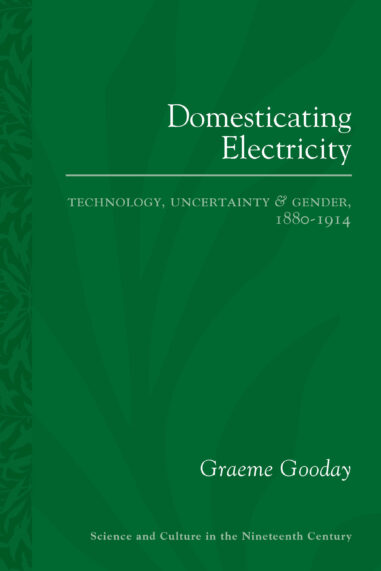
Paperback $60.00
Request Exam or Desk Copy. Request Review Copy
Domesticating Electricity
Technology, Uncertainty and Gender, 1880–1914
Gooday's valuable study brings new nuance to our understanding of the process of electrification and the diverse valences of electricity before World War I . . . a truly excellent book.

